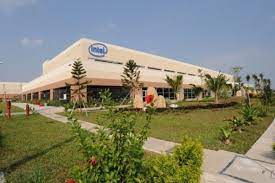In an effort to increase chip capacity, Intel announced on Friday that it will invest up to $4.6 billion in a new semiconductor assembly and test plant close to Wroclaw, Poland.
In an effort to take advantage of the European Commission’s loosened funding requirements and subsidies as the EU strives to reduce its reliance on U.S. and Asian supply, the U.S. chipmaker revealed plans to build a sizable chip complex in Germany along with facilities in Ireland and France last year.
The company stated that the Polish factory will employ 2,000 people and generate thousands more jobs during the development phase and hiring by suppliers.
In a press conference, Intel CEO Pat Gelsinger claimed that Poland was “just a little bit hungrier” to win the site.
A number of nations have been competing to get Intel to invest in their areas, and some, like Germany, who have managed to reach an agreement with Intel, have been in discussions on the level of subsidies they may offer.
The German government and Intel were reportedly close to reaching an agreement for 9.9 billion euros ($10.83 billion) in subsidies, up from the previously agreed 6.8 billion, according to the Handelsblatt Daily on Thursday.
In an interview, Gelsinger stated, “We are not asking for handouts; we are asking for competitiveness.
“Labor costs have increased significantly, and material costs have increased significantly. As a result, the cost gap was suddenly larger than we had initially estimated.”
On Monday, Olaf Scholz, the chancellor of Germany, will meet with Gelsinger, according to a government spokesman in Berlin.
Gelsinger said he wants to reach an agreement but declined to go into specifics about the subsidy amount.
“There are too many gaps. Gelsinger remarked, “If we shut them, we shake hands, and we are moving on.
During the announcement on Friday, the amount of any subsidies Poland may have provided to Intel was not disclosed.
The facility’s planning and design will start right away, and the building will start after receiving clearance from the European Commission.
The factory built by Intel was referred to as “the largest greenfield investment in Poland’s history” by Mateusz Morawiecki, the country’s prime minister.
The business, which has 4,000 employees and has been operating in the nation for 30 years, cited Poland’s talent pool, infrastructure, and location in relation to both its proposed facility in Germany and its site in Ireland as factors in its decision.
By 2027, it anticipates the facility to be operational.
To regain its position as the industry leader in chip manufacturing and more effectively compete with AMD, Nvidia, and Samsung, Intel has invested billions in the construction of plants on three continents.

















